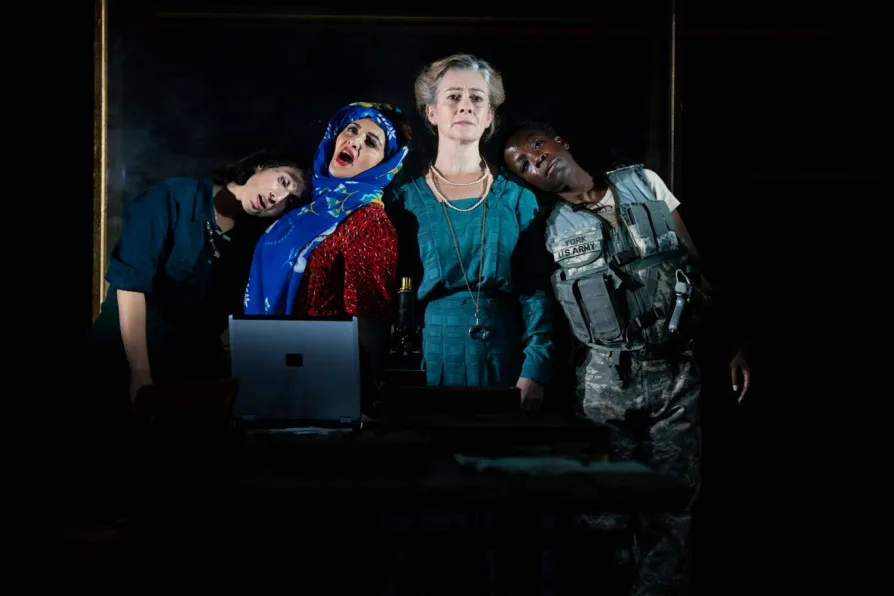New releases from Van Morrison, Tyler Ballgame, and Dry Cleaning

 History lesson: A Museum in Baghdad
[Ellie Kurtz]
History lesson: A Museum in Baghdad
[Ellie Kurtz]
FOCUSING on Baghdad Museum, one of the world’s greatest, which was devastatingly looted in the immediate aftermath of the 2003 US invasion of Iraq, this is a play struggling to communicate with an audience sated by news of more recent Middle East crises.
The action deals simultaneously with both the efforts of the indefatigable Gertrude Bell (Emma Fielding), to open the newly created museum in 1926 and those of Ghalia Hussein (Rendah Heywood) to retrieve what was possible after the destruction decades later.
Khalil questions the meaning to be drawn from our understanding of antiquities and what values they can offer to a world ripped apart by violence and suffering.

GORDON PARSONS is blown away by a superb production of Rostand’s comedy of verbal panache and swordmanship

GORDON PARSONS acknowledges the authority with which Sarah Kane’s theatrical justification for suicide has resonance today

GORDON PARSONS is disappointed by an unsubtle production of this comedy of upper middle class infidelity

GORDON PARSONS joins a standing ovation for a brilliant production that fuses Shakespeare’s tragedy with Radiohead's music










